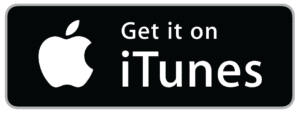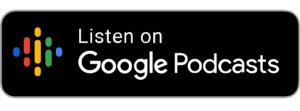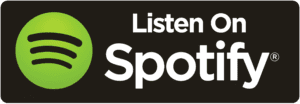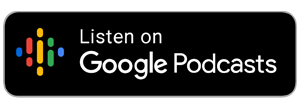Garry Ridge, the CEO of WD-40 Company, joins the show to talk about the keys to building a successful company culture.
Many entrepreneurs have trouble building a culture that enables them to build a scalable company.
In this episode, Garry Ridge, the CEO of WD-40 Company, joins me on the show. WD-40 is a product found in 8 out of 10 American households and sold in more than 176 countries around the world. In this interview, Garry and host Meny Hoffman discuss the approach WD-40 took throughout the years to turn one product into a billion-dollar company, the qualities that make a good leader, and how to build a culture that truly allows you to scale your company.
Listen to the podcast here:
Download the audio file here.
How to Build a Culture that Helps You Scale with Garry Ridge
Our guest is Garry Ridge, CEO of WD-40 Company. WD-40 is a product found in eight out of ten American households and sold in more than 176 countries around the world. It’s become an iconic global brand. In fact, there’s a saying, “You only need two tools in life: duct tape and WD-40.” If it’s not stuck and it’s supposed to be, duct tape it. If it’s stuck and it’s not supposed to be, WD-40 it. I’m so excited to share with you this interview. It’s full of golden nuggets for business leaders. In this interview, Garry and I discuss the approach WD-40 took throughout the years for expansion and scalability and how they stayed singular focus on a singular product. Pay attention to how Garry explains what it takes to build a scalable company. Garry breaks down the steps of building a culture of excellence. Finally, pay close attention to the practical tips Gary provides for measuring the success in your culture. Without further ado, here is my interview.
—
Garry, thank you so much for joining me.
It’s great to be with you. Thank you.
It’s a real honor. I’ve been following you for a couple of years now. I’ve been following the product my entire life. I want to start for our readers that know the household name, WD-40, but you have been with the company now for over 25 years on different positions. You’re now the active CEO of the company. The sales of the company has quadrupled for the last couple of years. Bring us back a little bit to the beginning. Based on your history, you came from Australia and joined the company. What was the beginning of your involvement with WD-40?
I joined the company in 1987 in Australia. I’ve been on the Australian subsidiary. Prior to that, I worked for the distributor of WD-40. That’s how I got to know the people here. With a fax machine under my bed, I opened the subsidiary. I worked for a few months getting the people on board and finding out office space and spinning up our supply chain. In 1988, we opened the subsidiary and then from 1988 to 1994, I worked out of the Australian office. I did a lot of work in Asia. We were looking at how we would expand our business into the Asian market. In 1994, I got the opportunity to move to the United States to head up our global expansion, if you will. The company back then was about a little less than a quarter of its revenue than it is now and 90% of the business within the United States. We believed that the blue-and-yellow can with little red top could create positive memories in many places around the world in a larger way.
I got the opportunity to do that. Now, 65% of our business is outside of the United States. I got to lead the company in 1997 and we started to build out our global infrastructure. That’s where I became aware of the fact that micromanagement wasn’t scalable and we needed to create a culture that set people free while giving them safety. The way we talk about it now is imagine a place where you go to work every day. You make a contribution to something bigger than yourself. You feel safe, you learn something new and you go home happy. We’re pleased to being able to have that culture and the magnificent tribe with WD-40 Company that helping create memories every day around the world.
I remember growing up and seeing the blue-and-yellow can. I once asked my father what it is. The answer was very simple, “When you grow up, you’ll need it.”
[bctt tweet=”Culture is values plus behavior multiplied by consistency. ” username=””]
My dad was an engineer back in Australia. I remember clearly asking him a question. I said, “Dad, what do you think about me working for WD-40?” He said, “You can’t go wrong with that stuff, son.”
The typical line that you use a lot in the company which is you only need two tools in life, duct tape and WD-40. If it’s not stuck and it’s supposed to be duct tape it. If it’s stuck and it’s not supposed to be, WD-40 it. Messaging on that line, you as a CEO of such a large company, we’ll get into some of the details later. Some companies are so confused with their messaging and people don’t even know what the product is all about, what the business is all about. Nailing it is so precise is something that helps the company and the growth as well.
We believe that culture is such an important part of what we do. Culture to us is values plus behavior multiplied by consistency and that’s so important to us.
I want to start asking you a little bit about the company in general. I would want to get your feedback and your insights a little bit on the culture itself and for our listeners to be able to learn from it. Even seeing the facts that you’ve put out on the website, nothing confidential. We’re looking at a company for over 60 years, hundreds of millions of dollars in sales. The statistic of selling a million plus cans of WD-40 each week. What does it tell us for a person who’s listening this, about having a company focusing on a singular product? When we speak strategy, most CEOs and most business leaders, when they speak strategy is how can we innovate? How can we do more products, more services and diversifying? Here you’re speaking to a company that’s singular focus is a singular product.
What’s clear to us is we may have the blue-and-yellow can with a little red top, which is 90% of our business. It’s these two ways you can grow. We chose the growth way of expansion globally. Even though WD-40 in the United States and some other countries around the world is a fairly developed brand, there’s lots of opportunities to acquire new end-users in many countries around the world. That’s why we’ve been growing at double-digit rates in Europe and in Asia because there’s a long way to go in those countries. We acquire new end users every day. We can do that with the assets we have. We’ll continue to do that until we’ve been able to maximize the brand globally. We have started to expand the brand in some of our developed markets but still under the shield, the blue and yellow shield, with some special WD-40 products. I agree. If we need to grow, there are a couple of ways you can grow.
You can grow what you have or you acquire something else. Even within our brand, we’re innovators with our delivery systems. In the United States, through talking to our end-users, we’ve learned that if we gave them a way to get our product to places that are hard to get to and make it easier for them to use so that when they’re working on their cars in a workshop or when artisan or a tradesperson is doing work at their house or in factories, then I would see value in that. That’s why we have things like our easy reach delivery system, which is an eight-inch flexible delivery system. It’s like a hose. That is a way we are innovating through our product range as well. Global expansion number one and then innovation within our own product to help make the work of our end users easier.
As a follow-up question to this, people reading this and even picking interest in this in the first place is because you’re known for that singular product for such a long time. When you speak to a leader or a CEO from another company that is struggling with growth, what would you say to that leader? Is it always the case to look at expansion, your existing products before you go into different markets? Or because the proprietary part of your product where you say, “We know that there are no other products in the market like this, so we could just go from market to market?”

I’m not smart enough to have the answer for every other CEO. It could be either/or. Most importantly is do you have a clear vision of where the opportunities are? There’s a great book written years ago by Al Reis called Focus: The Future of Your Company Depends on It. As a CEO and a leader, one of the key roles we play is determining what we are going to focus on, which then helps us determine how we will deploy our time, our talent, our treasure and our technology which are the assets of the company. Having a clear vision of where the opportunities are is very important and then being able to challenge that to make sure that it is real. That’s one of the roles that we have as a CEO and a leader.
Let’s speak about the concept of about WD-40. I know throughout the history, it didn’t start off the name of the company. WD-40 was a product and then it all resolved into the company, the same name of the product. Were you at that part of a leadership team?
I wasn’t. The product was invented in 1953 in San Diego. The company name back then was Rocket Chemical Company and the company worked in the aerospace industry, making products that were around stopping corrosion and condensation. There was a challenge. They had condensation in the umbilical cord of the Atlas space rocket and the chemists at those times started to work on formulations to see if they could solve the problem. There were 39 formulas that didn’t work and they then got to the 40th formula that did work. That’s why the product is called WD, Water Displacement 40th formula. In the ‘60s, the then CEO, a guy by the name of Jack Berry said, “We have something here that’s important. We don’t sell rockets. Why are we calling ourselves Rocket Chemical Company? We’ll change the name to WD-40 Company.” We’ve been WD-40 Company ever since then. There was a real deliberate reason for that happening back then in the ‘60s as we started our business.
That’s still a decision that’s working well for the company.
Absolutely. We are WD-40 Company.
I want to speak about culture. This is something that’s important to you as a CEO. You’re living it every day based on what we see putting out content of even employees of WD-40 and also on the website as far as the culture. For our listeners, before we dive into culture, a lot of people reading this probably think maybe WD-40 is a small company. Maybe they have ten to twenty employees working the formula. Tell us a little bit of the size of the company which what’s public knowledge and let’s dive into some practical questions on culture.
We’re a NASDAQ listed public company. Our market cap the last time I looked was about $2.5 billion. We market our product in 176 countries around the world. We have offices in fourteen countries around the world. We have about 500-plus tribe members. The reason that the number 500 is surprising is because we outsource all our manufacturing. If we were to be manufacturing, we’d have a few thousand people. Our revenues are north of $400 million. We’re small but not that small company. We spread right across the globe. The sun never sets on WD-40 Company. Somewhere around the world at any time, the sun is shining on us.
I bet you that a lot of people just sitting down and thinking, “What did I just hear?” That’s the size of company of the singular product which comes to show when there’s proper leadership and its proper vision and an expansion. It’s not about how many products you have, it’s about the need and the problem you’re solving. I love what you’ve done throughout the years where you had the different contests and different campaigns, even to find out from the public how many problems will solve them.
We did a campaign back in the year 2000 where we wanted to discover how many uses there are for WD-40. We had hundreds of thousands of entries and we now have WD-40s list of 2,000 uses that is up on our website. We listen to our end-users. They’re the ones who know our product best. They’re the ones who can tell us how they best find value in the product. We talk to them a lot. They drive our innovation. It’s important to hear what they have to say.
Let’s speak about company culture. I know that it is very valuable to you as a leader and it’s been seen in the marketplace. I want to answer a question that a lot of people have and now there is the trending towards having better cultures in the past wasn’t that as the industry standard for businesses. How do you see that as a driving force for scalability within a company?
If you take care of your people, your people will take care of your customers and your customers, in the end, will take care of your shareholders. Culture to us is extremely important. It’s a fact that 65% of people who go to work every day are either disengaged or actively disengaged, which means that they are not enjoying what they do. Aristotle said in 394 BC, “Pleasure in the job puts perfection in the work.” If we were to take Aristotle’s philosophy and think about it, our job as a leader is to create an environment where people go to work every day. They make a contribution to something bigger than themselves. They learn something new, they feel safe then they go home happy. If we do that, then they’re going to find pleasure in their job, which means their work output will be better than if they don’t enjoy their work. We’ve spent many years building a culture based on that and to us, there are four things you need in business people.
Notice I say people first, purpose, passion and products. If you have those in place and then you care about your people, you’re candid with them, you’re holding them accountable and you expect them to be responsible. Treating them with respect and dignity, having an exciting environment to be part of. You get the outcome we have where 99% of our tribe members globally say they’d love to tell people they work for WD-40 Company. 96% of them say they trust their coach or their supervisors. It’s a matter of creating this culture that allows freedom, creativity and encourages people to be brave. We don’t make mistakes. We have learning moments. We’re such a learning organization. Nelson Mandela said, “Education is the most powerful tool we can use to change the world.” Learning in an organization is the most powerful tool we can use to help out people grow. They’re the elements that we focus on every day. That’s why we have the culture we have.
We have learning moments. We don’t make mistakes. That’s a great line for our readers. I want to dive in some practical advice and what you shared is so important and leaders need to listen to that. Some leaders will go and say, “Where do we start?” From a practical perspective, when a leader wants to continue to enhance their culture, where does this play out? Is it in the hiring process and the training process and every day? If you could give us some examples, how do you make sure that you’re enhancing the culture on that every single day?
The first page you start is with the people. We call ourselves a tribe, not a team. The reason we do that is one of the biggest desires human beings have is to belong. If we don’t create that opportunity for them to belong, they won’t feel like they’re treasured. Number one is we have a tribal culture. The things in the tribal culture that are important to us are learning and teaching. The number one responsibility of our leaders is to be learners and teachers. We have values in our organization. They are hierarchical. They give people freedom and they give them a lane to operate in that allows them to make decisions without having to back up the hierarchy. We’re warriors and we like to celebrate.

Number one, it starts with the people. If you were to look at our website, values are very important to us. On our careers page, it talks about our values. It says, “If you of align with these values, then you don’t need to talk to us because we employ first for values.” We certainly test for competency but I prefer a passionate values-based person with a medium competency than a highly competent person that doesn’t have a passion and doesn’t respect values. The hiring processes is deeply important. The on-boarding process, the continued educational process, that continual communication is really important to make sure that not only do they adopt the culture but they embed it in their daily activities.
I’ve checked other websites and I encourage everybody reading to check out the website. There’s a lot to learn, even the way it’s displayed on the website, not just a jungle of words but how it’s applying and how the statistics are matching up to what you’re writing over there. Let me ask you a question. Obviously, it’s not a small company as far as the team size. I love how you are approaching it as a tribe because immediately when you’re hiring someone and they see that this is how it’s being called, even the name, they will say, “This is something that I want to be part of or not.” It almost weeds out the people that are looking for a job as you call it.
That’s intentional, yes.
The question is how do you keep and this is more of a practical point. In every culture, there’s going to be people that have different types of different jobs, different responsibilities, let’s call it. There are people that are more on the top, more in the day-to-day. How do you make sure that each person in their position is feeling they’re contributing to their purpose?
Number one, our motto is we’re not here to mock your paper, we’re here to help you get an A. I wrote about that in the book that I co-authored with Ken Blanchard called Helping People Win at Work. The main reason that people don’t feel appreciated or that they let each other down is because there isn’t a clear understanding of what we will hold each other accountable for. We spend a lot of our time making sure that A) Our strategic drivers are very clear so that people know what we as an organization are striving to do and B) On an individual level that our tribe members and their coaches have a clear definition of what an A looks like. Our job as a coach is to help them to get that A to identify areas for growth and opportunities. It’s an on-going leadership. It’s a contact sport. It’s a day-to-day interaction. At the heart of it, it has to be the commitment of the leader that they are there to help the people that they lead be the best they possibly can be.
There is something out there, especially old school CEO as the leaders of companies. Let’s call them not even leaders, managers or directors, they had those titles where leadership is totally different as we discussed. They always confuse the concept of if we can have this great culture, it means we’re going to be kind people and we’ll always look at opportunities for growth. Some people will take advantage of it and ultimately, we’re not going to get the results we need to get. How do you balance and how do you make sure that the culture is balanced between we have a business to run, we have to hit our targets but yet we have to also focus on the rest of the stuff we should just discussed, which is training, giving them opportunities, helping them lead the way?
Leadership is a balance between being tough-minded and tender-hearted. The genius is in the end and the middle. We’re not saying that servant leadership or leadership that builds a great culture is all about having Kumbaya singing lessons. It incorporates planning and execution and strategy. The challenge that leaders have is that they exclude the people purpose and values stuff to be overly focused on the strategy and the tactics. What I believe is that you have to look at all of them. Our job is to create a business that creates an economic outcome that can fuel the economic engine of the business. We have to be making sure that we’re looking at the performance as well. Simon Sinek released a new book called The Infinite Game. If the readers can get a hold of it and read it, it talks about the important elements of the infinite game, which causes worthy rivals and an engaged team. All of these elements are so important to be able to play the infinite game instead of the finite game.
[bctt tweet=”Leadership is a balance between being tough-minded and tender-hearted. ” username=””]
Let’s look at it from an employee perspective in the ranks of a larger company. When you would have a one-on-one conversation with an employee that’s not performing well, what would that look like? Meaning their growth plan. Is it getting the person on the skillset right? What are the things that in your culture that’s almost non-negotiable?
Values are not negotiable. We expect people to live our values. We look at performance around what did we agree? Were we deliberate in setting the goals, both financial goals and operational goals? It all starts with the planning of what we expect of each other. Our job is to help people achieve that but the values are not negotiable.
How do you set the tone on the values for a new hire? What is the process within the culture that you set to make sure that the right people are coming in the door and the wrong people are weeded out from the get-go?
We have an employment recruiting process that spends a lot of time talking with the prospective tribe members. We have a lot of conversation talking about these are our values. What do these mean to you? How would you live these values on a daily basis? Give us examples of what this means to you. We spend a lot of time in the employment process trying to understand who the people are and whether they do align with the thinking that we have. It’s not some integrated psychological test. It’s watching the behavior of people in many different ways.
Speaking about culture in general, do you have any measurement of quality of the company culture? A lot of companies say, “We have a great culture.” All of a sudden, they’re doing a survey to their employees and they find out that it’s totally not what I expected or they hear something back from the outside. What are the practical things there that you’re doing that you would be willing to share with our readers that even for measurement purposes to make sure that we’re improving and keeping our culture to a certain standard?
On the formal side of it, we do employee feedback surveys every two years. We used to do them every year but we do them every two years now because we’ve got such a high employee engagement number that we need more time to move the needle. Within those 26 questions, we can identify culture. That’s the formal way. The other way is management by walking about and talking to people. We hold sessions with our tribe members where we talk about what behaviors would we see emerging within the organization if they felt that our culture was moving away from where it is which is a more positive, collaborative, performance-based culture to something else. Remember, I said culture is values plus behavior times consistency. We look at our people how they’re performing around their values. Are they living our values or just visiting them? That’s important behavior. We observe each other’s behavior and consistency. Are we living this day by day?
I love what you mentioned about behavior because sometimes culture is confused in the marketplace as the perks and the ping pong tables and the babysitting service. People don’t realize that a successful culture means the behavior of the people in it within the culture.

The things that you mentioned are not culture. They’re accessories.
There’s a time for that as well but that’s not what defines the culture of a company.
Culture is about what we said. It’s about care, candor, accountability and responsibility. It’s about respecting people, treating them with respect and dignity, giving them opportunities to learn and grow. Building trust with them by no lying, no faking, no hiding. It’s all of the things that if you ever want to read a book, read All I Really Need to Know I Learned in Kindergarten. It’s up to its seventeenth edition and it’s got things like say, “Please,” and “Thank you.” Pick up after yourself, don’t steal. If you go out late at night, make sure you’ve got a friend with you, and take those basic human behaviors and then apply them to business. It works pretty well.
What you just said is so important because as technology and the world is changing, the fundamentals are not changing that much. That’s building relationships. I’ve spoken to different CEOs. We had the CEO of 1-800-GOT-JUNK, Brian Scudamore. He said that we’re in the people business and people didn’t change that much. You need to treat them well. You need to make sure that they’re taken care of. They need to have their autonomy and their way of being part of the purpose and have passion to what they do. Sometimes you forget about it, the basics.
One of the biggest diseases we have in the world right now is loneliness. The reason we have loneliness is that we have all of these opportunities to exclude the opportunity to interact with people. We’re social beings. We can’t rely on a tweet or a text. I heard some statistics. They said that one of the biggest groups that are suffering from loneliness are the 18 to 24-year-olds. The reason they are lonely is they’re not dating because they are using texting to be their communication tool. They’re not building interpersonal skills.
Even on social media, I’ve heard it was one of the Zuckerbergs which said that, “Keep in mind that on Facebook, people are only sharing one hour of the 24 hours.” People got carried away what they’re seeing and not doing enough with growing themselves. Let’s speak about as a leader of a company, as the CEO of a large company, speaking about culture and your responsibilities. If you don’t mind sharing, what is the day in the life of your own as the CEO of WD-40? What is included in a day like yours in order to be able to make sure that your responsibility and the vision is there for the company?
It depends on the day but then I’ll tell you the theme that runs through what I do all the time. I’m responsible for the continued culture of the company which means openness, listening, engaging, respecting. Those are the things that are core to making sure that our empathy eats our ego instead of our ego eating our empathy. Being vulnerable and showing that vulnerability is a strength. I’m probably wrong and roughly right on anything in the world that I think about. As a CEO, I don’t have all the answers. My job is to involve the people, to be a champion of hope, to encourage learning, to encourage collaboration. These are the things that I think about and I work on a daily basis apart from all the other stuff I do. I often say that I have an abundance of worthwhile work. The most important worthwhile work is the work that I do with my people.
[bctt tweet=”A leader has to be fully committed to help the people that they lead be the best they possibly can be. ” username=””]
In a good culture, which some people mistake that happens by accident, it doesn’t happen by accident. It has to be intentional.
It’s very deliberate. You think about culture. When we were at school, we got a Petri dish in the science lab and we put stuff in the Petri dish that allowed us to grow culture. What is important? Number one, to grow great culture, be careful what you put in the dish. Number two, you have to watch that dish consistently and be ready to extract any antibodies or toxins that are getting in there that could sour the culture.
There’s a phrase that I think you mentioned before as well but I’ve seen you use a lot, which is the servant leader. How would you explain that? What does it mean and how does the concept impact your approach to leadership?
I love the way Simon Sinek says it. “Leadership is not about being in charge. It’s about taking care of people in your charge.” A servant leader is someone who’s dedicated to taking care of the people in their charge, which means both helping them grow, learn, respecting them, treasuring them. That’s what should the leadership is about.
What would you say is the most critical skill that a small business owner reading this needs to learn in order to become a servant leader?
It’s not about you. It’s about the people you lead. Make sure that your ego does not eat your empathy. Make sure your empathy eats your ego.
Let me ask you a question. I know your time is very valuable. On the website, there’s a bunch of fun facts. What is the fun fact about WD-40 that you’d want to share with our readers?

The product?
Yes.
The biggest fun fact is we’re in the memories business and our mission is to create positive lasting memories. There are many ways that our products use that create those positive, lasting memories in the hands of our end-users.
I want people to read up about the company because it’s very valuable for every business owner to understand how much you need to invest in a culture. WD-40 as a company has done tremendous amount of work there. Garry, you as a leader has been driving that and I would also want to link up to LinkedIn. I know I got to see your work on LinkedIn as you post a lot of good stuff. I found out the first time that you co-authored the book, Help People Win At Work. I’ll personally go buy it to be able to read it. I would like to close with four rapid fire questions. Number one, what is a book that change your life?
All I Need to Know I Really Learned in Kindergarten.
Number two, what is a piece of advice you’ve got that you’ll never forget?
The three most powerful words. To accept, “I don’t know.”
[bctt tweet=”Vulnerability is a strength. Make sure that your empathy eats your ego instead of your ego eating your empathy. ” username=””]
Number three, is there anything you wish you could go back and do differently?
I have many scars. There’s a lot that I could think about. Life’s a journey. This is a learning journey.
What you said before, it’s all a learning moment. Number four is what’s still on your bucket list to achieve?
More of the same. I hope that we can continue to create a place where we send people home happy. The bucket list is continuing to send people home happy.
Thank you so much for joining us. I know your time is valuable and that is why in the name of our readers, we will forever be grateful for sharing some of your time with us. I really appreciate it.
You’re welcome. Thank you for the invite.
Links Mentioned
- WD-40 Company
- Focus: The Future of Your Company Depends on It
- Helping People Win at Work
- The Infinite Game
- All I Need to Know I Really Learned in Kindergarten
- Brian Scudamore – previous episode
About Garry Ridge
 As chief executive officer and a member of the board of directors of WD-40 Company, Garry Ridge is responsible for developing and implementing high-level strategies, all operations, and the oversight of all relationships and partnerships for the company. Garry is passionate about the learning and empowering organizational culture he has helped establish at the WD-40 Company, and his vision and leadership have positively impacted the WD-40 Company in both measurable and immeasurable ways.
As chief executive officer and a member of the board of directors of WD-40 Company, Garry Ridge is responsible for developing and implementing high-level strategies, all operations, and the oversight of all relationships and partnerships for the company. Garry is passionate about the learning and empowering organizational culture he has helped establish at the WD-40 Company, and his vision and leadership have positively impacted the WD-40 Company in both measurable and immeasurable ways.
Garry is also an adjunct professor at the University of San Diego where he teaches leadership development, talent management, and succession planning in the Master of Science in Executive Leadership program. In 2009, he co-authored a book with Ken Blanchard outlining his effective leadership techniques, titled “Helping People Win at Work: A Business Philosophy called ‘Don’t Mark My Paper, Help Me Get an A.’ ”








